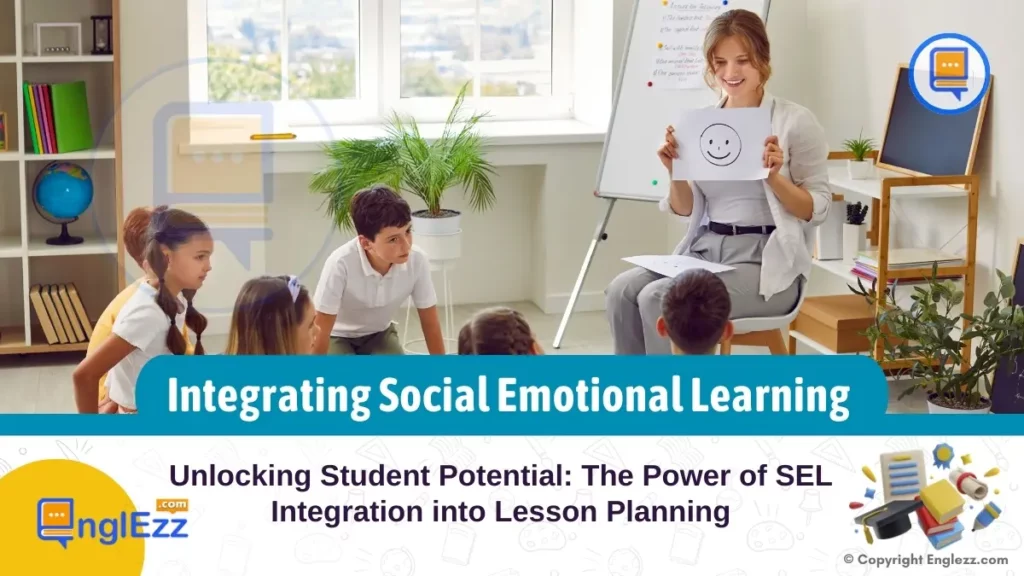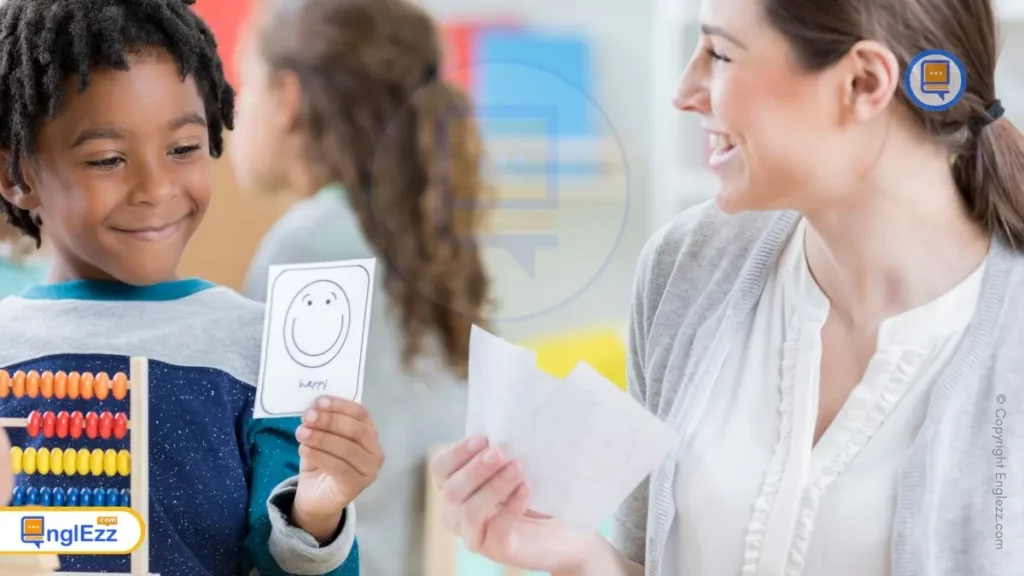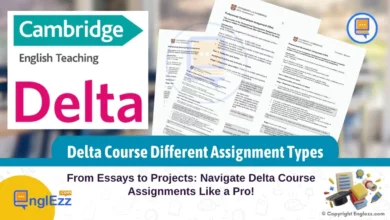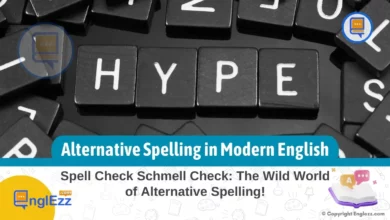In the intricate tapestry of education, where knowledge intertwines with personal growth, lies a transformative approach that goes “Beyond the Curriculum.” Delving deep into the realm of teaching, we unravel the profound significance of integrating Social Emotional Learning (SEL) principles into lesson planning. It is within this synergy of academic rigors and emotional intelligence that a profound shift occurs, unlocking untapped student potential and nurturing holistic development.
Table of Contents
- Beyond the Curriculum: Integrating Social Emotional Learning into Lesson Planning
- Understanding Social Emotional Learning (SEL)
- Integrating SEL in Lesson Planning
- The Impact of Incorporating SEL into Lesson Planning
- Professional Development for Educators
- Overcoming Challenges in Implementing SEL
- Parental Involvement in Supporting SEL
- Measuring Success: Evaluating Student Growth
- Celebrating Achievements: Showcasing Best Practices
- Empowering Future Generations Through Social Emotional Learning
- Frequently Asked Questions About Integrating Social Emotional Learning into Lesson Planning
- 1. Why is SEL important in education?
- 2. How can educators integrate SEL into lesson plans effectively?
- 3. What long-term benefits does integrating SEL offer students?
- 4. Are there resources available for educators looking to enhance their understanding of SEL practices?
- 5. How can parents support SEL at home?
Beyond the Curriculum: Integrating Social Emotional Learning into Lesson Planning
Imagine a classroom where equations not only solve mathematical problems but also cultivate empathy, where historical events not only teach facts but also foster resilience. Herein lies the heart of SEL integration – a harmonious blend that propels students beyond mere grades and test scores to instill enduring skills for life’s journey.

By weaving SEL competencies into the fabric of daily lessons, educators embark on a journey that enriches minds and hearts alike, igniting academic growth while fostering emotional intelligence in each student.
Understanding Social Emotional Learning (SEL)
Social Emotional Learning (SEL) is a holistic approach to education that emphasizes the development of essential life skills alongside academic knowledge. It encompasses a range of competencies that empower students to understand and manage their emotions, establish positive relationships, make responsible decisions, and navigate social situations effectively. At its core, SEL promotes self-awareness, self-regulation, empathy, social awareness, and responsible decision-making.
The benefits of incorporating SEL principles extend far beyond traditional measures of academic success. By nurturing emotional intelligence through SEL, students experience improved mental well-being, enhanced relationship skills, and better resilience in facing life’s challenges. For instance, when students learn to recognize and regulate their emotions in the classroom setting, they are better equipped to handle stress both academically and socially. This leads to a more conducive learning environment where empathy and understanding flourish among peers.
Moreover, embracing SEL can equip learners with essential life skills that pave the way for long-term success. Research has shown that individuals who possess strong social emotional competencies are more likely to excel not only academically but also in their careers and personal lives. By honing skills like effective communication, teamwork, conflict resolution, and self-discipline through SEL practices in schools, educators are preparing students for the complexities of the real world where emotional intelligence plays a pivotal role in overall achievement and fulfillment.
In summary, understanding Social Emotional Learning goes beyond recognizing its significance within educational settings; it underscores the profound impact it can have on shaping well-rounded individuals capable of thriving in diverse environments. By cultivating these core competencies early on through deliberate integration into lesson planning processes, educators lay the foundation for students’ holistic growth—setting them on a trajectory toward realizing their full potential both academically and personally.
Integrating SEL in Lesson Planning
When it comes to integrating Social Emotional Learning (SEL) into lesson planning, understanding how to seamlessly infuse SEL competencies like self-awareness, empathy, and responsible decision-making is essential. An effective way to incorporate these skills is by incorporating them into existing subject matter. For instance, in a science class discussing environmental issues, students can explore the concept of empathy by examining how human actions impact ecosystems and reflecting on ways they can make responsible decisions for the planet’s well-being. By tying SEL principles directly to academic content, educators can bring real-world relevance to their lessons while fostering emotional intelligence.
In a literature class, teachers could introduce activities that focus on building self-awareness through character analysis or journaling exercises that encourage students to reflect on their emotions and thought processes. By connecting characters’ experiences with students’ own feelings and reactions, educators create opportunities for young learners to develop a better understanding of themselves and others. Through such engagements, students not only enhance their literary comprehension but also hone vital social skills necessary for navigating relationships both inside and outside the classroom.
Incorporating Social Emotional Learning (SEL) into lesson planning should be a continuous effort. Consistency in reinforcing SEL principles across various subjects and classroom activities helps create a holistic learning environment for students. For example, starting each class with a brief mindfulness exercise can set a positive tone for the rest of the lesson while nurturing students’ self-awareness and emotional regulation skills consistently.
Furthermore, promoting responsible decision-making can be integrated into any classroom setting by including group discussions on ethical dilemmas related to course material or current events. By encouraging open dialogue and guiding students through moral reasoning processes, educators help young minds cultivate the ability to weigh consequences carefully and make informed choices – a skill set crucial for success in academics and life beyond school walls.
These actionable strategies demonstrate the versatility of SEL integration across diverse subjects and underscore its role in shaping well-rounded individuals poised for personal growth and societal contribution.
The Impact of Incorporating SEL into Lesson Planning
The impact of incorporating Social Emotional Learning (SEL) into lesson planning goes beyond just academic growth. By integrating SEL competencies such as self-awareness, empathy, and responsible decision-making, educators have the opportunity to significantly influence student development. Research has shown that students who are equipped with strong emotional intelligence skills tend to exhibit improved behavior and higher levels of engagement in the classroom.
When students learn to understand their emotions, communicate effectively, and navigate social interactions successfully, they become better equipped to handle challenges both academically and personally.
Furthermore, studies have highlighted the long-term benefits of nurturing emotional intelligence alongside academic skills. Students who receive instruction in SEL not only show improvements in areas like self-discipline and relationship management but also demonstrate enhanced academic performance over time. By addressing the emotional needs of students through intentional lesson planning that incorporates SEL principles, educators can create a more supportive and inclusive learning environment where every student has the opportunity to thrive holistically.
For instance, a school that implemented a comprehensive SEL curriculum noticed a significant decrease in disciplinary issues among students. By focusing on teaching conflict resolution skills, fostering empathy, and promoting self-reflection within their lessons, teachers observed a positive shift in student behavior both inside and outside the classroom. This showcases how investing time and effort into integrating SEL into daily lesson plans can yield tangible results in terms of creating a positive school climate and improving overall student well-being and engagement levels.
Professional Development for Educators
In the realm of education, continuous professional development is not merely a checkbox to tick; it is the cornerstone upon which students’ success is built. When it comes to integrating Social Emotional Learning (SEL) practices into lesson planning, educators play a pivotal role in cultivating environments that nurture both academic growth and emotional intelligence in their students. Recognizing this critical need, schools and educational institutions are increasingly offering specialized training and resources designed to empower teachers with the skills necessary for effective SEL integration.

One impactful approach to enhancing educators’ ability to integrate SEL practices involves interactive workshops led by experts in the field. These workshops provide teachers with practical strategies, real-life scenarios, and collaborative opportunities that help them understand how to infuse SEL competencies seamlessly into their daily lesson plans. By engaging educators in experiential learning activities that mirror what they will implement in their classrooms, these workshops bridge the gap between theory and practice, equipping teachers with the confidence and tools needed to create emotionally supportive learning environments.
Furthermore, online platforms and resources dedicated to SEL professional development offer self-paced modules, webinars, and forums where educators can deepen their understanding of SEL principles at their own convenience. These digital resources cater to diverse learning styles and schedules while providing access to up-to-date research findings and best practices in social emotional learning. Through a combination of in-person workshops and online resources, teachers can take a holistic approach toward honing their skills in nurturing students’ social emotional competencies alongside academic achievements.
Ultimately, empowering educators through comprehensive professional development not only enhances their teaching efficacy but also strengthens their ability to connect with students on a deeper level. By investing in ongoing training for teachers focused on integrating SEL practices into lesson planning, educational institutions pave the way for a generation of students equipped not only with subject knowledge but also with vital life skills essential for navigating complex emotions and relationships successfully.
Overcoming Challenges in Implementing SEL
When educators embark on integrating Social Emotional Learning (SEL) principles into their lesson plans, they often encounter various challenges that can hinder the seamless implementation of these valuable skills. One common obstacle faced by teachers is the tight constraints of curricula and schedules, leaving limited time to address SEL competencies effectively. To overcome this challenge, educators can integrate SEL into existing subjects rather than treating it as an additional task. For example, a science teacher could incorporate group projects that focus not only on scientific concepts but also on collaboration and communication skills, promoting SEL within the established curriculum.
Another barrier educators face is resistance from students who may not initially see the immediate value of developing social emotional skills. To tackle this issue, teachers can create engaging and relatable activities that highlight the practical benefits of SEL in both academic settings and real-life scenarios. For instance, incorporating role-playing exercises or interactive discussions on conflict resolution can demonstrate to students how emotional intelligence positively impacts their daily interactions and future success.

Furthermore, limited resources or training opportunities for educators in SEL practices can be a significant challenge when trying to implement these strategies effectively. Schools can address this by providing continuous professional development workshops tailored to help teachers incorporate SEL methodologies into their lesson plans. By offering ongoing support and access to resources such as online modules or peer mentoring programs, schools can empower educators to overcome obstacles and nurture students’ social emotional growth alongside academic learning.
Encourage educators to integrate SEL competencies through interdisciplinary projects or collaborative activities. For instance, an English literature assignment could involve analyzing characters’ emotions to develop empathy skills, linking literary themes to personal experiences for increased self-awareness. By connecting academic subjects with social emotional development, students can see the practical applications of their learning beyond the classroom.
In navigating these challenges, creating a supportive environment where both educators and students feel encouraged to embrace and practice social emotional skills is key. By fostering a culture that values empathy, self-awareness, and responsible decision-making at all levels of education—from classroom interactions to school policies—educators can successfully integrate SEL principles into their teaching practices and unlock the full potential of every student’s holistic development.
Parental Involvement in Supporting SEL
Parental involvement plays a crucial role in reinforcing social emotional learning (SEL) beyond the confines of the school environment. When educators and parents work together to promote SEL values, students receive consistent messages that reinforce the importance of skills such as empathy, self-regulation, and responsible decision-making. To enhance students’ holistic development, it’s essential for teachers to establish open lines of communication with parents regarding SEL initiatives. By sharing insights on the benefits of SEL and providing resources for parents to continue fostering these skills at home, educators can create a unified support system that nurtures emotional intelligence both inside and outside the classroom.
One effective way for educators to collaborate with parents in supporting SEL is through regular updates on classroom activities that focus on social emotional development. For instance, sharing stories or anecdotes about how students demonstrate qualities like resilience or teamwork can prompt meaningful discussions at home. By encouraging parents to engage in conversations that reinforce SEL principles, educators extend the impact of these lessons beyond school hours. This collaborative approach not only strengthens the bond between home and school but also reinforces the value of social emotional skills in various environments.
Empowering parents with tools and strategies to incorporate SEL into daily routines can further deepen student understanding and application of these crucial competencies. Activities such as mindfulness exercises, reflective journaling prompts, or family discussions centered around emotions can help bridge the gap between school-based learning and real-life situations. When parents actively participate in nurturing their child’s social emotional growth, students benefit from a comprehensive support network that encourages the development of strong interpersonal skills alongside academic achievements. Ultimately, by fostering collaboration between educators and parents in championing SEL values, we pave the way for well-rounded individuals who are equipped to navigate challenges with resilience and empathy.
Measuring Success: Evaluating Student Growth
Assessing student growth in social emotional learning (SEL) requires a multifaceted approach that goes beyond traditional academic metrics. Incorporating various assessment methods, such as self-assessments, peer evaluations, and observation-based assessments, can provide a comprehensive understanding of students’ progress in developing essential SEL skills. By utilizing tools like rubrics tailored to specific competencies like self-management or relationship building, educators can effectively evaluate the nuanced aspects of emotional intelligence.
Furthermore, creating a feedback loop involving educators, students, and parents is crucial in tracking improvements in both academic performance and emotional intelligence. Regular communication channels that allow for constructive feedback and open dialogue can foster a supportive environment for students to reflect on their social emotional growth. For instance, student-led conferences where learners discuss their SEL development alongside academic achievements with their teachers and parents can offer valuable insights into their holistic progress.
In practice, implementing a system that collects data on both quantitative measures like behavior reports or assessments and qualitative feedback through journal entries or reflection exercises can offer a well-rounded view of student growth. By analyzing trends over time and identifying areas for improvement collaboratively with students and their families, educators can tailor support strategies to meet individual needs effectively. This iterative process not only enhances accountability but also cultivates a shared responsibility among all stakeholders in nurturing students’ social emotional skills for long-term success.
Celebrating Achievements: Showcasing Best Practices
In the realm of education, celebrating achievements that stem from successful integration of Social Emotional Learning (SEL) is paramount to inspiring both educators and students alike. A notable success story emerged from a middle school where teachers implemented daily mindfulness practices within their curriculum. Over the course of a semester, they noticed a significant decrease in disciplinary issues and an increase in students’ ability to regulate their emotions effectively. Not only did academic proficiency improve, but students also displayed higher levels of empathy and cooperation among peers, showcasing how SEL can transform the learning environment positively.
Engage in regular self-reflection as an educator to assess the effectiveness of SEL integration in lesson planning. Consider keeping a journal or using feedback from students to evaluate which strategies are resonating most with your class. By continuously reflecting on your teaching practices and making adjustments based on student responses, you can refine your approach to fostering both academic growth and emotional intelligence effectively.
In another instance, an elementary school introduced a peer mentoring program that paired older students with younger ones to foster relationships based on empathy and support. This initiative not only bolstered academic performance through collaborative learning but also witnessed a substantial enhancement in social skills like communication and conflict resolution. By intertwining academic content with SEL principles in such an interactive way, students thrived both academically and emotionally, creating a well-rounded educational experience that nurtured holistic growth.
Moreover, a high school creatively integrated SEL into various subject areas by incorporating service-learning projects. Students engaged in community service activities linked to their coursework, allowing them to apply academic knowledge practically while developing essential life skills like leadership and social responsibility. This approach not only deepened their understanding of the curriculum but also instilled values of compassion and civic engagement that are crucial for personal development. These examples illuminate how innovative approaches that combine academics with SEL can pave the way for comprehensive student success beyond traditional measures of achievement.
Empowering Future Generations Through Social Emotional Learning
In a world where academic excellence often takes the front seat, it is crucial to recognize that true empowerment comes from not just cognitive abilities but also social and emotional competencies. As educators, administrators, and curriculum developers, we hold the key to shaping future generations into empathetic, resilient, and socially aware individuals through the intentional integration of Social Emotional Learning (SEL) principles. By weaving SEL competencies into our lesson plans, we sow the seeds for holistic growth in students, preparing them to navigate life’s challenges with grace and understanding.
Imagine a classroom where academic achievements are not measured solely by test scores but by the depth of empathy shown towards peers during group projects or the resilience displayed when facing setbacks. This vision becomes a reality when SEL becomes an integral part of our educational fabric. Through fostering self-awareness, cultivating responsible decision-making skills, and nurturing positive relationships within classrooms, we equip students with tools that extend far beyond their academic journey.
As we embrace the transformative power of integrating SEL into lesson planning, we embark on a journey towards building a generation of leaders who embody not only intellectual prowess but also emotional intelligence. Each activity promoting self-regulation or conflict resolution becomes a stepping stone toward creating communities where differences are celebrated, collaboration thrives, and kindness reigns supreme. Let us continue to champion Social Emotional Learning in education to unlock the true potential of every student and empower them to lead fulfilling lives enriched by both knowledge and compassion.
Frequently Asked Questions About Integrating Social Emotional Learning into Lesson Planning
1. Why is SEL important in education?
– SEL helps students develop essential life skills such as empathy, cooperation, and self-regulation which are crucial for personal and academic success.
2. How can educators integrate SEL into lesson plans effectively?
– Educators can seamlessly incorporate SEL by infusing activities that promote self-awareness, social skills, and responsible decision-making into daily lessons across subjects.
3. What long-term benefits does integrating SEL offer students?
– Students who receive consistent SEL support show improved academic performance, better behavior management skills, increased emotional intelligence, and higher levels of overall well-being.
4. Are there resources available for educators looking to enhance their understanding of SEL practices?
– Yes, there are various workshops, training programs, and online resources dedicated to equipping educators with the knowledge and tools needed to effectively integrate SEL principles into their teaching practices.
5. How can parents support SEL at home?
– Parents play a vital role in reinforcing SEL values by promoting open communication at home, modeling positive behaviors themselves, and collaborating with educators on a unified approach toward fostering social emotional development in children.









Integrating Social Emotional Learning into Lesson Planning empowers educators. Learn how to create impactful lessons that nurture emotional intelligence!